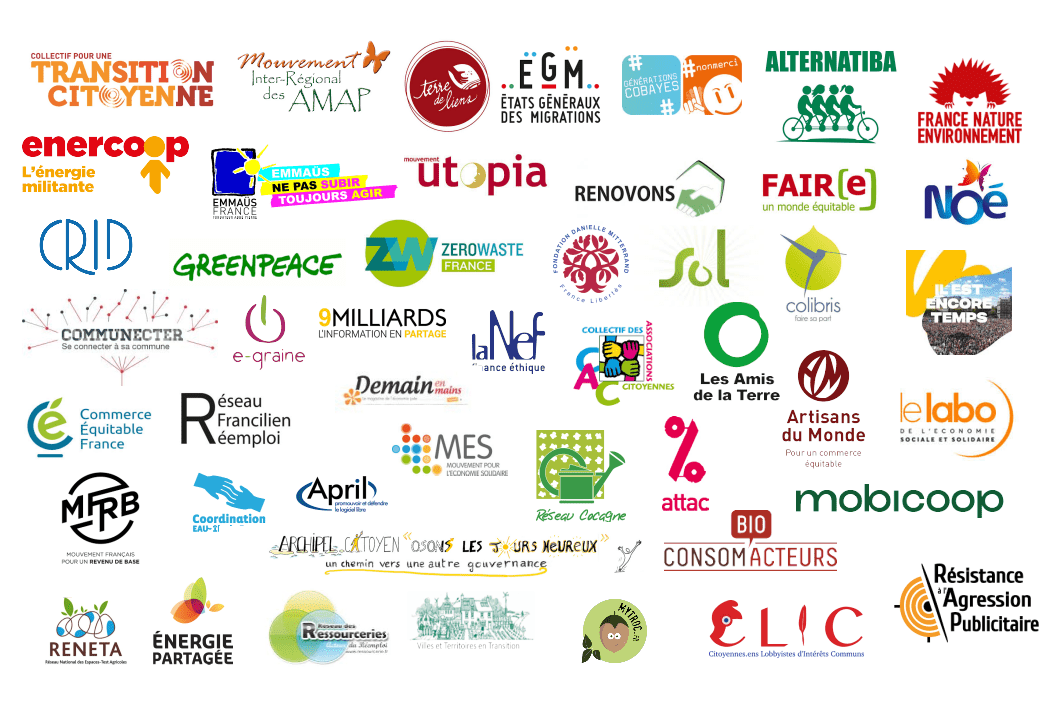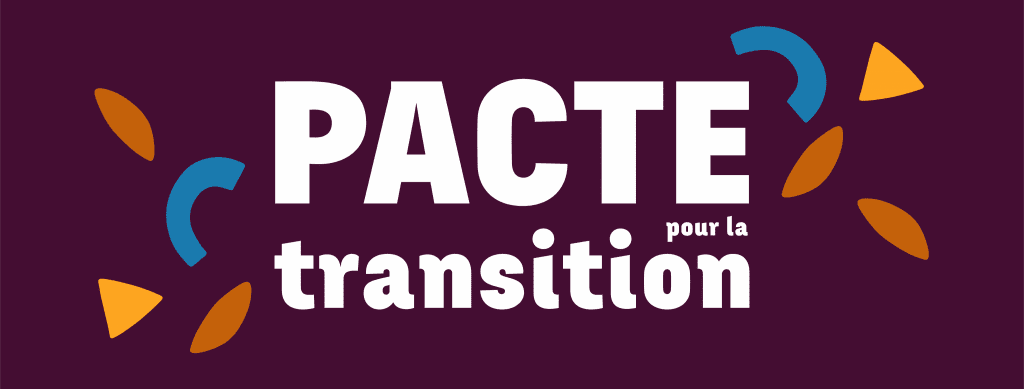Le Pacte pour la Transition (Transition Pact)
By Yaz Brien 10th May 2019
The population covered by local governments that have declared a climate emergency now approaches 50 million citizens in 8 countries – and this movement of movements is growing.
As people join together to demand that elected councillors and politicians make bold climate emergency declarations, they are also working together to come up with solutions to climate change, growing inequality, and the crisis of democracy. Many of us have already changed our daily habits to consume less and reuse more, and the next step is to transform public policy.
What might we dare to dream for our towns of tomorrow, and how do we collaborate to turn these dreams into realities?
Le Pacte pour la Transition (The Transition Pact) has launched in France and offers a vision and tool for a local politics that is more social, more democratic, and more ecological.
The Transition Pact has been developed by 50 organisations and 1135 participants, with over 23,000 votes helping to turn 154 ideas into 3 core principles and 32 measures – thanks to the work of an experts’ committee of 26 people.
With municipal elections due to take place across France in March 2020, The Transition Pact will be used by citizens to create a dialogue with candidates to identify, and later implement, concrete measures to encourage the ecological, social and democratic transition of their local area.

All candidates signing up to the Transition Pact, and using it in their campaigning, will be expected to respect the three core principles; promoting awareness raising and training about transition, co-designing local policies, and integrating long-term impacts on environmental and social criteria into decisions about local projects.
In addition the Transition Pact offers a menu of 32 concrete measures from which candidates will choose at least 5 that they will take action on if they are successfully elected. Local collectives will work with them to ensure that these commitments are respected and implemented.
These 32 measures range from ethical public procurement to supporting local farmers, from protecting water to helping those experiencing fuel poverty with energy efficient home renovations, from tackling unemployment by prioritising ecological and social job creation to limiting advertising in public spaces, from welcoming new arrivals regardless of immigration status to prioritising walking and cycling in public design.
If every municipality across France elects a candidate who has signed up to and implements measures from the Transition Pact, the local impact will ripple and shift the country as a whole.
If people in every municipality in every country develop their own Transition Pacts, factoring in local contexts and needs alongside the changes required to tackle climate emergency, the impact could be global.
For more information: https://www.pacte-transition.org/#pacte
